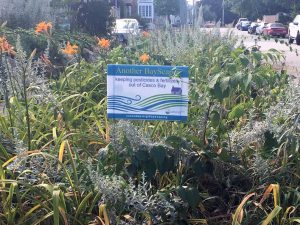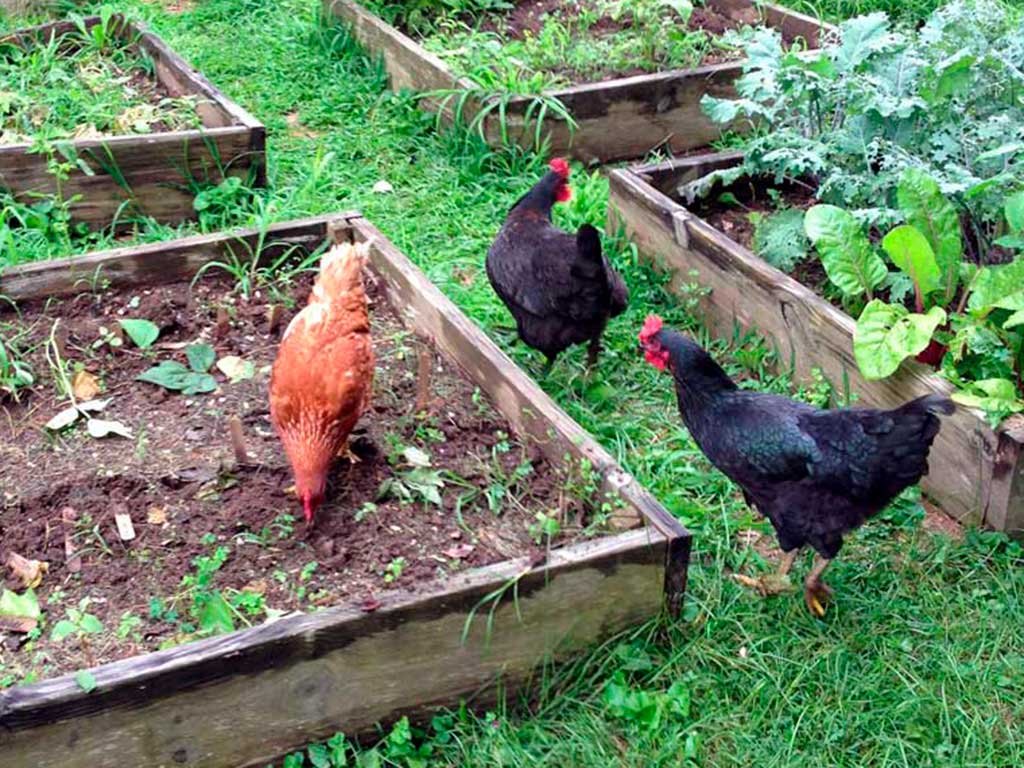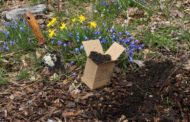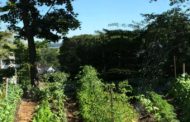Reduce your use of fertilizers using these fall lawn care tips
by Bridget Chase
How you treat your yard this fall will impact Casco Bay, a defining natural feature of the Portland area and the Maine coastline. Fertilizers are one of the leading sources of nitrogen found in Casco Bay. Excessive nitrogen is a major contributor to the thick slimy green algae blooms found in the Bay that suffocate the marine life below. Sixty percent of the fertilizer applied to lawns and gardens will find its way back to the Bay in the form of runoff. This statistic is of growing concern for Casco Bay since the sale of fertilizers continues to grow and grow. So we offer fall lawn care tips that will reduce your impact on the Bay.
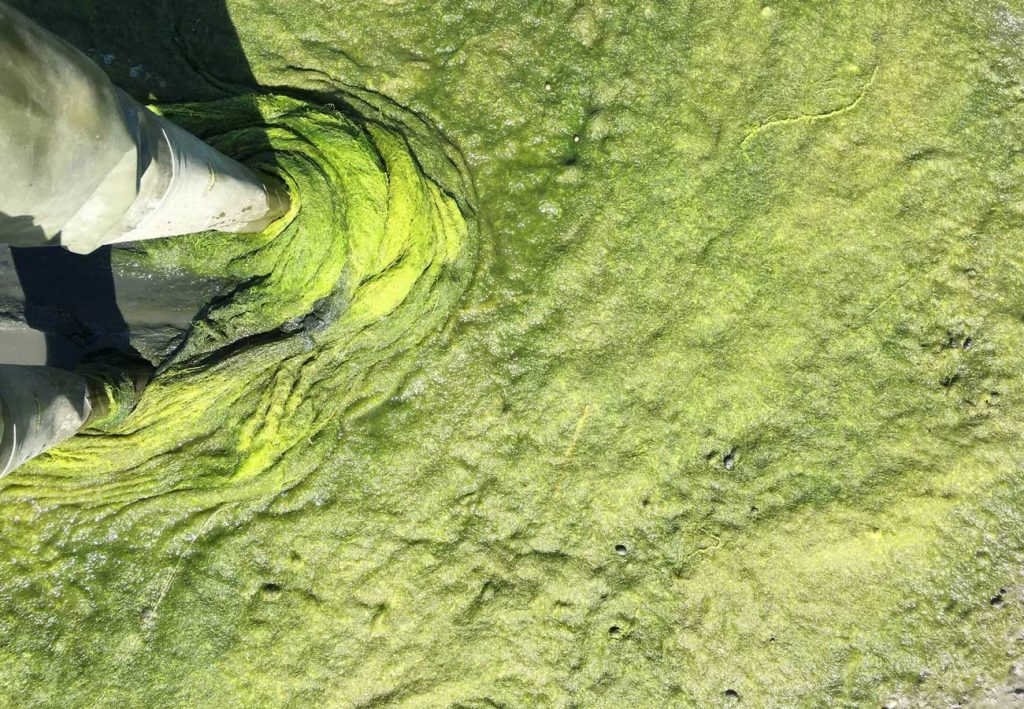
Green slime likely caused by too much nitrogen. Mill Creek, South Portland, Aug 2016. -Photo by Bridget Chase
WEN reported last month that the rising nitrogen levels in the Bay were an issue this summer because of the convergence of conditions – clear skies, hot weather and little rain. Most concerning to the Friends of Casco Bay Baykeeper, Ivy Frignoca, were the possible new locations the green algae has been noted. The Friends of Casco Bay are studying the implications of this summer’s algae blooms on Casco Bay and plan to share its findings.
Here are a few tips for fall lawn care that will benefit your lawns and gardens and have minimal impact on Casco Bay.
Test your soil
Know your soil’s pH level and what, if any, nutrients are lacking. This inexpensive test may show you don’t need to do anything – a savings for you and the environment.
Dare to be Different and More Local
Since green and manicured is hard to maintain in Maine, why not make it easier? Use the fall and winter to make changes that introduce native and bee-loving species to your lawn. It could make yard care easier and more rewarding.
Weed your garden, if you must
Are dandelions that bad? Act now, if you really can’t stand your weeds. Dig out the entire root structure of the weeds. Missing even a centimeter (.3 inches) of a root could mean you will see it next year. Use weed barriers (plastic or cloth) on the problem areas. Then cover with mulch or wood chips to improve the overall aesthetics. This will give your yard a winter-long weed removing facial. Depending on your issue, spreading corn gluten meal, a natural herbicide, kills seeds and prevents problem plants like dandelions from sprouting back up.
Rake and Aerate your soil
Raking allows your lawn to see the light of day. Kept under cover, bad things like life-killing thatching thrive. Compaction goes with having a lawn. People and animals walking on your lawns press down the soil. Poking holes in your soil allows it to breath more freely to better receive water and nutrients.
Amend your soil
Do your homework and review your soil test results. Adding natural soil amendments such as compost, peat moss, or coir (coconut fiber) at least once a year is a great way to ensure the best soil structure for a healthy thriving lawn and garden. Remember, adding the nutrients not needed, such as sulfur to lower the pH or lime to raise it, can have a detrimental effect on your lawn, garden and soil.
Want to do more?
Contact the Friends of Casco Bay (www.cascobay.org) about becoming a bayscaper or the Cumberland County Cooperative Extension (www.umext.maine.edu).
-Bridget Chase
Bridget is a freelance writer who lives in the West End and loves it.

